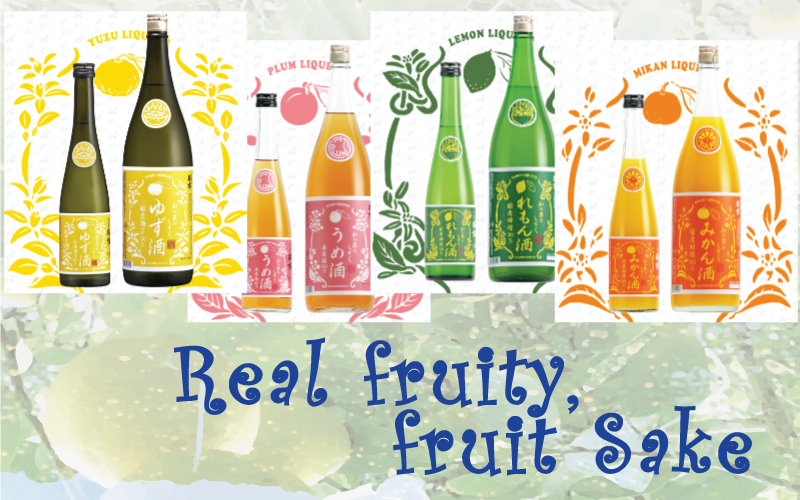For those of you who have visited Japan you may be aware of chu-hi, you will find an abundance of different flavored chu-hi in convenience stores and supermarkets however you may be less aware of the new trend: Fruit Sake.
Chu hi is what we would call alcopops, coolers or spirit coolers (depending where you live). These RTD’s are extremely popular in Japan and are a mix of fruits, usually citrus, with the Japanese alcohol Shochu.
Japanese consumers now have an alternative in Fruit Sake as Sake makers are starting to enter the Alcopops market with their Fruit Sake. Although in it’s early stages and not as prevalent as chu-hi they are scrumptious. The few Sake breweries who have started to explore Fruit Sake mainly focus on strawberry, yuzu (a citrus flavor mix between orange and lemon), ume (plum) and orange. Fruit Sakes are not as readily available as chu-hi but being essentially the same idea as chu-hi (fruit steeped in alcohol, just Sake not Shochu) there is little education needed for the consumers.
For the overseas market the case is similar: everyone knows Alcopops so the step to Fruit Sake is not a big one and needs little market education.
Not only do consumers now have a delicious alternative there is also benefit for the breweries. Sake is mostly made from October to, when it is bottled, in early Spring-this leaves the rest of the year for breweries to twiddle thumbs and maybe make small batches of seasonal Sake. With the fruits being available out of the main Sake brewing season breweries can use their capacity to diversify and experiment with new innovative fruity flavoured Sake.
As with all Sake the taste varies between the breweries with some having a back taste of Sake and some more fruity. After trying a good range of Fruit Sakes from various breweries based in Japan, Sakeportal.com – a Sake distributor based in Kyoto specializing in sourcing True Taste Sake from smaller artisan breweries with generations of history and awards-has found a brewery that produces exceptionally fruity, Fruit Sake and we would like to introduce you to this new trend with a selection of their best Fruit Sake.
How the brewery started the Fruit Sake business: Born from an Encounter with the Finest Fruits
The brewery was initially planning to make chu-hi and went to Wakayama in search of ripe Plums. They met a wonderful ripe Nanko plum famer whose plums are harvested in the mountains and have a rich scent reminiscent of peaches. They found they were able to make plum liqueur with a soft taste by soaking it in Sake.
After talking with the farmer they discovered about lemons that are cultivated in another place. The lemons in Japan are usually imported products with a pointed shape similar to American football balls, but domestic lemons are rounder than that and the farmer said they are less sour than imported products so they were not selling well.
However, the domestic lemon has a very Japanese-friendly shape, the sourness of the lemon is soft, and in addition to the Japanese-style tenderness, it also has a ripe and rich umami. It is a wonderful thing with a strangely slight sweetness.
Also imported lemons are harvested in an immature state with blue fruits and turn yellow during import, and that wax for preservative purposes is used. The strong acidity that creates the sourness is because it is harvested in an immature state. The Japanese lemons do not use pesticides or the antiseptic wax.
So the brewery master visited the lemon gardens on the slope of the mountain which started cultivating lemons more than 100 years ago. They fell in love with the lemon, whose taste has been passed down for 100 years and so the brewery, starting with these two flavors, went on to create a range of Fruit Sakes made from the finest fruits.
Sake and luscious domestically grown fruits come together.

Lemon Fruit Sake
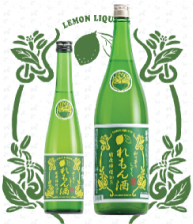
Brewery Notes:
Lemon Fruit Sake has been born and we want many consumers to taste this high-quality lemon Sake for its elegant and easy-to-drink taste that makes use of the softness of domestic lemon and Sake. Harvested after reaching full ripeness, they have a sweetness and rich flavor not found in the commonly available imported lemons, resulting in an elegant, gently tart lemon Sake.
Ume (Plum) Fruit Sake
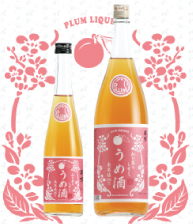
Brewery Notes:
Visiting the orchard just before harvest, you are treated to the gently sweet, peach-like aroma given off by the ripe plums. We steep in Sake (instead of the more common Shochu) to produce a sublimely mellow Plum Sake that brings out the full aroma of ripe, luscious plums.
Mikan (orange) Fruit Sake
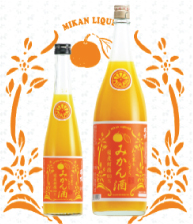
Brewery Notes:
We met a wonderful mandarin orange in Ehime. Mandarin oranges cultivated in Akahama, Ehime prefecture, that do not rely on pesticides or chemical fertilizers. “Mikan Sake” was born for the first time in five years and it is mainly made from blue oranges, and uses Satsuma mandarin, sweet summer, etc. to create a very juicy and rich taste.
Yuzu Fruit Sake
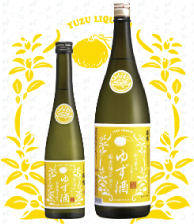
Brewery Notes:
We hope to support this production area as much as possible, and at the same time we fell in love with the fact that there is no fragrant yuzu anywhere else in Japan, and so “Yuzu sake” was born. Made from the birthplace of yuzu these precious yuzu are made into a Fruit Sake that is fragrant and has a profound taste by using not only the fruit but also the whole. It is a full-fledged taste that you can enjoy with meals as well as before and after meals.
A pure delight to drink, you can buy these Japanese Fruit Sakes direct from Japan through Sakeportal.
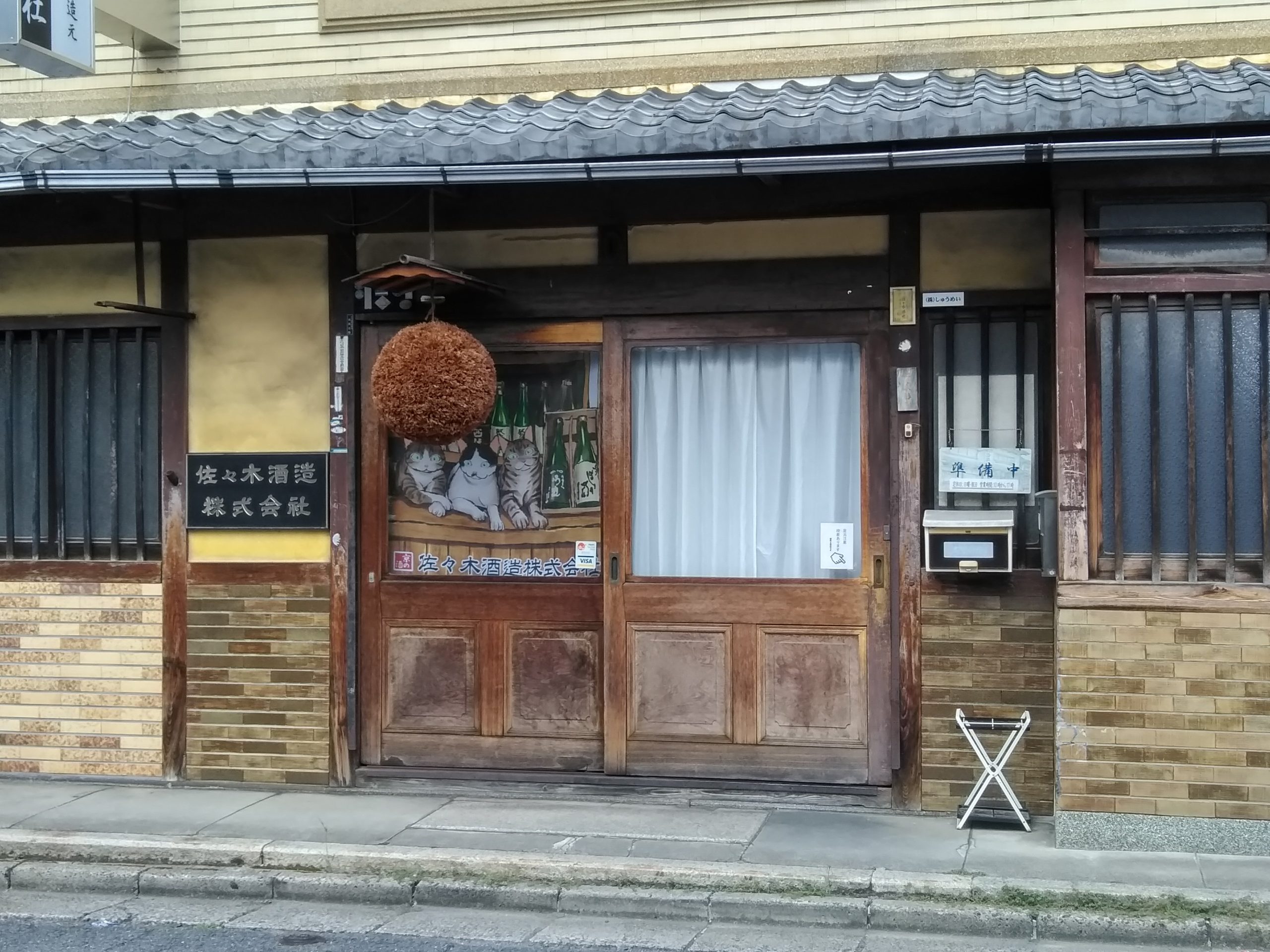 Previous Article
Previous Article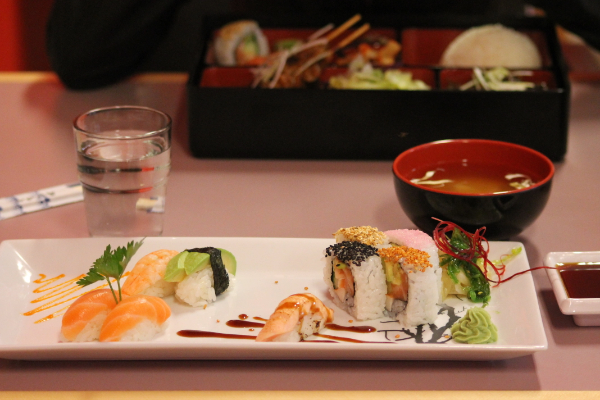 Next Article
Next Article
- Categories:
- Share :
 Previous Article
Previous Article Next Article
Next Article
